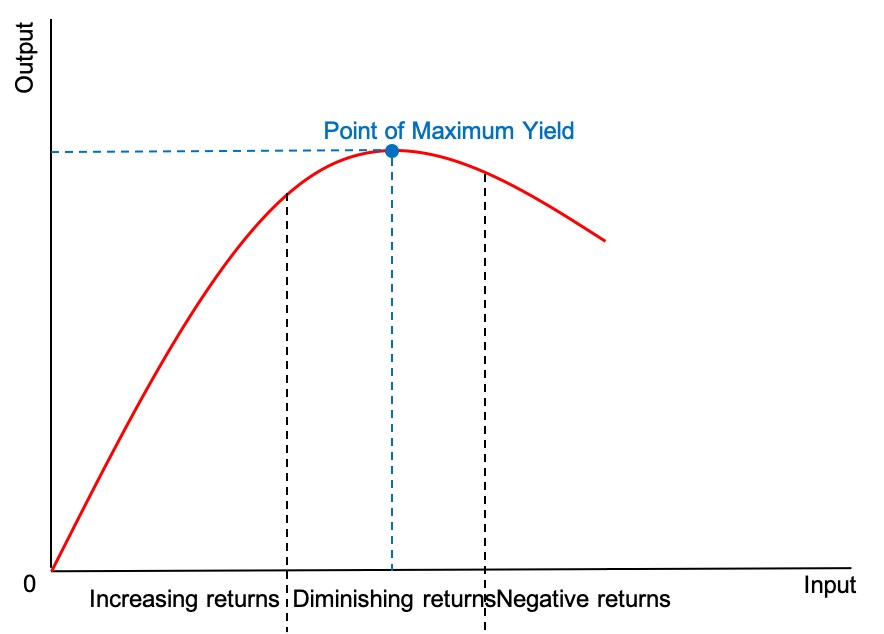Lagom:/lɑ̂ːɡɔm/ is a Swedish word meaning “just the right amount”.
Do you remember the story of Goldilocks and the three bears?
A little girl invades the house of three bears, Papa, Mama and baby bear. She tries the food of Papa bear, but it’s too hot. She tries the food of Mama bear, but it’s too cold. The food of the baby bear and it is just right. She clears the plate.
She then tries to sleep. Papa bear’s bed is too hard, Mama bear’s bed is too soft, but baby bear’s bed is just right, and she sleeps off.
The idea is that there is a specific sweet spot that you’d like to be in. Too much of anything is harmful. Too little, and you are left wanting more. There is that sweet spot that you’d like to be.
Bringing it down to our life, you wouldn’t want to have the most money or too much money that it becomes a source of worry or problem. You wouldn’t want to have too little living that your next meal is not sure, and life is miserable.
You’d want to have the right amount where you can have all your needs met and some more.
Human desire tends to be insatiable. We are so anxious for pleasure that we can never get enough of it. We stimulate our sense organs until they become insensitive, so that if pleasure is to continue they must have stronger and stronger stimulants. In self-defense the body gets ill from the strain, but the brain wants to go on and on. The brain is in pursuit of happiness, and because the brain is much more concerned about the future than the present, it conceives happiness as the guarantee of an indefinitely long future of pleasures. Yet the brain also knows that it does not have an indefinitely long future, so that, to be happy, it must try to crowd all the pleasures of Paradise and eternity into the span of a few years. -Alan Watts
The Wisdom of Insecurity: A Message for an Age of Anxiety
In economics, we know that human wants are insatiable. You would always want more. However, this doesn’t mean you should go after it.
Today’s economy runs on consumerism. The more we consume, the better for the economy. Whether the products we consume hurts us or not, we are constantly pressured to consume. That’s what advertising is for. To make you look or (more accurately) feel incomplete without a product or service.
You can compare consumerism with drugs. You get a hit after a purchase and begin craving more after a while.
What happens?
The companies know that to produce the same amount of hit, you would need more than what you previously purchased (laws of diminishing returns), so they give you an updated or the latest version of what you bought after a year or two. Whether the item you purchased develops a fault or not, you get incentivized to buy a newer version.
Since wants are considered to be insatiable, striving for them becomes an unending process and society finds itself in a perpetual condition of scarcity. Given scarcity, conflicts of interests, competition, and property claims will necessarily follow.
The Insatiability of Human Wants: Economics and Aesthetics in Market Society by Regenia Gagnier
This also works well for the companies too. They get more revenue, and their shareholders are happy. A win-win, you ask. But at what cost?
The Law of Diminishing Returns
Diminishing returns, also called the law of diminishing returns or principle of diminishing marginal productivity, is an economic law stating that if one input in the production of a commodity is increased while all other inputs are held fixed, a point will eventually be reached at which additions of the input yield progressively smaller, or diminishing, increases in output.
If the definition doesn’t make sense, here is an example.
Let’s say you played football for an hour and a half. You are exhausted and very thirsty. To quench your taste, you drink a bottle of water. The satisfaction you gain from drinking the first bottle is high. You might still need more, you drink another bottle of water, and you get more satisfaction.
From this, you can glean that the more bottle of water you drink, the more your satisfaction. However, as you approach your fourth bottle, the satisfaction begins to reduce, and you don’t want to drink more. Let's say you add two more bottles; drinking more water would not be satisfying at this point. It would be distressing. That is what the law explains.
You get increasing satisfaction until a point when you hit the point of maximum satisfaction (or returns) any additional input will result in lesser satisfaction than the previous. This is the area of diminishing returns.
Everything in moderation, including moderation. - Anne-Laure’s Instagram
Readings
The Swedish philosophy of lagom: how “just enough” is all you need
Your Life is Driven by Network Effects
For more readings, check out Mtreadings
Thank you for reading, and see you next week.



Brilliant!